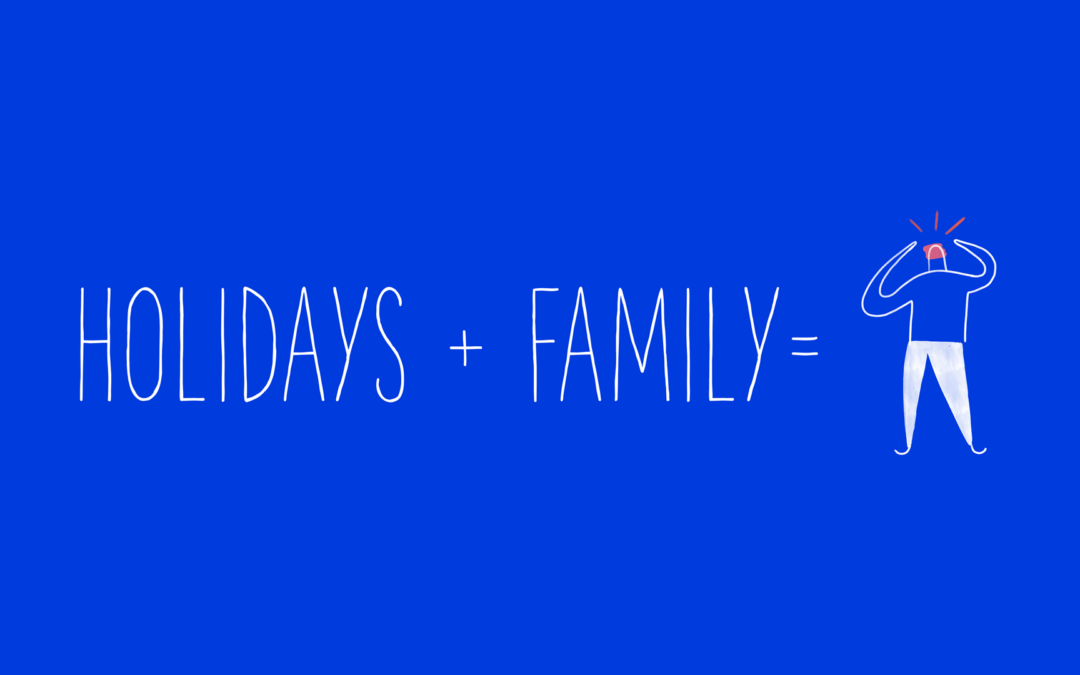For many of us, spending the holidays with family brings us comfort and joy. For others, holiday family time is anything but good tidings. From the stress of travel to the pressures of gift-giving, the holidays can trigger a flurry of bad habits and feelings that cause serious conflict. But family drama doesn’t have to run your season of joy off the rails. There are some healthy ways you can cope with family drama this holiday season through self-care and mindfulness. Here are 10 tips to help you keep your cool through the holidays and conflicts.
Understand your expectations
Before you pack your bags, you’ll want to get a clear sense of what you hope to get from your family visit and holiday travel. Do a personal inventory of the reasons why you’re spending time with family during the holidays and conflicts. If you feel like you’re going home solely to meet someone else’s needs rather than your own, it might be time to adjust your plans or your expectations.
Set your personal boundaries ahead of time
Don’t wait until you’re at the dinner table to set your personal limits. Determine for yourself what feels good and what doesn’t and use this information to guide your decisions. Next, make a game plan for how you’ll establish and set your boundaries in real time during your trip, then communicate them to those involved. This will be useful for everything from airport travel to mealtimes, sleeping accommodations, and even gift giving. You can always clarify or adjust your boundaries as you go along, but it helps to establish them ahead of time.

Stay open to others’ needs
Be open to having a dialogue with your family members about their needs, too. Depending on how aligned their needs are to yours, you might need to adjust your plans to accommodate theirs, if you’re willing. Once they communicate their needs, let them know that you’ve heard them and share how you’re willing to be flexible.
Be mindful of substances
The holidays are an indulgent time of year. But don’t let sugar, carbs, and alcohol impose on your family dynamic. In large amounts, these substances can impair your mood and judgement, so it’s super important to be mindful of your intake and not go overboard. If you’re currently in a 12-step program, investigate local meetings before your trip and build space in your schedule so you can attend them in person or have time to make calls.
Take a breather
Breaks can be a great way to reset and let off some steam. Go for a walk. Get some fresh air. Take a jog to get your blood pumping. Meditate or do some yoga. If you start to feel yourself getting stressed, it’s okay to hit pause and reboot with some self-care and relaxation. Just be sure to let others know that you’re coming back so they don’t misinterpret your absence or worry you got stuck in a chimney.
Speak for yourself, not for others
One of the great things about family is that we all play different roles. Though we often share experiences and memories, we can have differing viewpoints. Remember that you don’t have to resign to your family role. Be patient.
When things get heated, try using “I” statements to identify what you’re feeling and what your unmet needs might be. For example, instead of saying “You’re always stereotyping people from Los Angeles,” you could say, “I feel misunderstood when you say everyone in LA is shallow.”
“I” statements can help de-escalate an argument and give your family the opportunity to express their own needs and feelings, without putting them on the defensive.
Feel the feels
Sadness and grief sometimes show up during the holidays. Family gatherings can remind us of those who are no longer there, too. If you recently lost a loved one, talk to your family about ways you can commemorate them or acknowledge their absence. Check your family’s barometer in terms of what feels comfortable. Anticipate that the holidays may be a time of grieving and longing, but that reminiscing with others can help heal your grief.

Tap into stressbusters
Families often know just what buttons to push. If you feel yourself getting overwhelmed by emotions in each moment, try stress-busting techniques like silently counting backwards from 100, humming a song in your head, or conjugating verbs in foreign languages. You can practice light alternating tapping under the dining table on each of your knees. Rhythm can be soothing, and no one must know! You could also try deep, slow breaths from your belly to shift your body out of reactive mode.
Take a family-free vacation
Some people have family members that clash with their value systems, identity, and life choices. This can make the holidays a volatile time despite your best intentions and efforts. In some instances, taking a break from spending the holidays with your family might be the most caring choice for you right now. Try Friendsgiving this year or skip the week-long visit before New Year’s and opt for a staycation instead.
Refuel and establish your routine
Take time to refuel and re-establish your routine after the holidays. If you spent a ton of time with family, reconnect with friends when you’re back in town. If you have children and spent the holidays visiting extended family, carve out quality time with your nuclear family to regroup before you plunge back into normal life.
Sometimes, the holiday and conflicts can carry you through to the New Year. But if you need extra support planning before or during the holidays, reach out to our team for more support!

